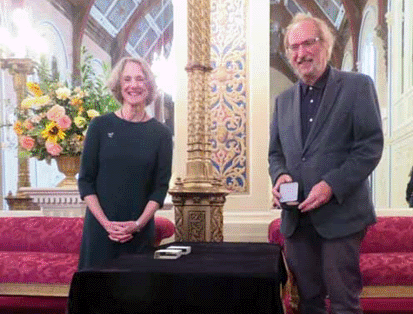Vale Distinguished Professor James Barrie Kirkpatrick AM (12 Oct. 1946 – 21 Oct. 2024)
It is with great sadness we acknowledge the death of Distinguished Professor James Kirkpatrick AM on 21 October 2024. Professor Kirkpatrick was one of our most prestigious members and a significant contributor to the Royal Society. In 2019 he was awarded the Clive Lord Medal in recognition of his research on Tasmania’s natural environment, including conservation planning, forest conservation and world heritage assessment. He was presented with the medal at Government House on 16 March 2021 by the Governor Her Excellency the Honourable Kate Warner AC and his Clive Lord Lecture ‘Cyclic dynamics in Tasmanian high mountain treeless vegetation’ was delivered online (due to Covid restrictions) and can be viewed on the RST YouTube channel.

